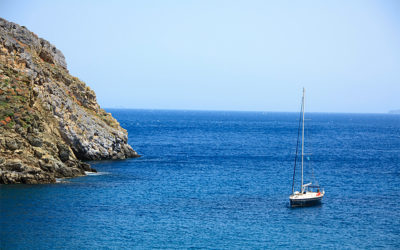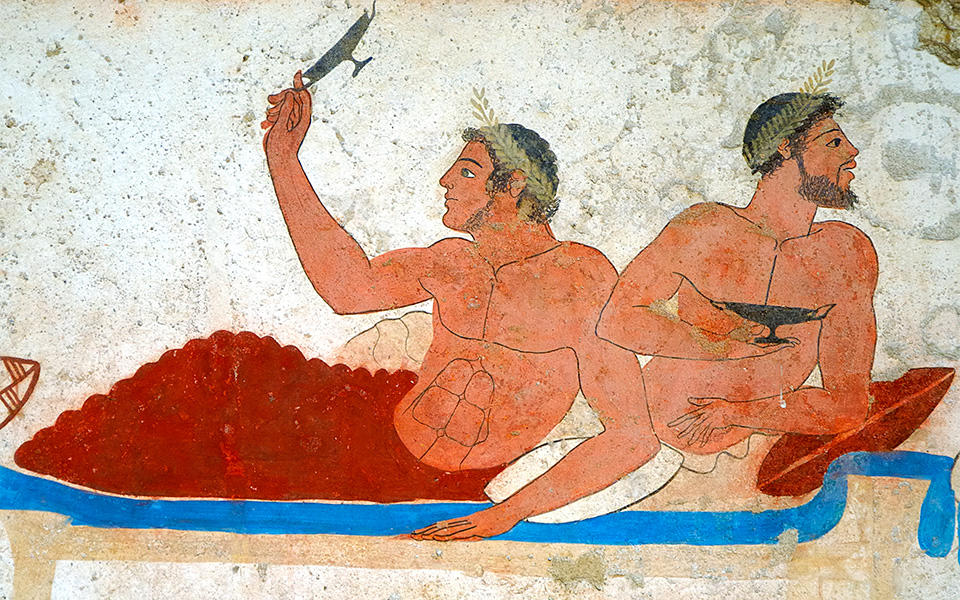
Life
How to Drink Like a Greek
An enviable hallmark of Mediterranean culture is the civilized role of alcohol, built on aspects of Greek lifestyle worth emulating:
Joy
People drink in joy in Greece. They drink, not to escape but, as they chime their glasses together, to engage more fully in the moment with one another. Even the occasional excess is usually a product of happy exuberance; drunken fighting and regrettable behavior are virtually non-existent.
(Consider also that as famously rich as the Greek language is, there is no specific word for hangover.)
A Sense of Public life
You can get a cold bottle of retsina and some plastic cups from the kiosk, and sit by the waterfront, which is what university students very often do – especially at sunset, with guitars – a sweet sight. Even here, drinking is complementary to enjoying the evening and each others’ company, not an end in and of itself.
Family Life
Young people might try a little wine or beer for the first time on festive occasions such as at Christmas or Easter surrounded by family. The introduction to drinking is gentle, civilized, always in a social context. A tipsy teenager is a rare sight in Greece, and very rarely are they dangerously drunk – alcohol just doesn’t have that juvenile thrill of the forbidden.
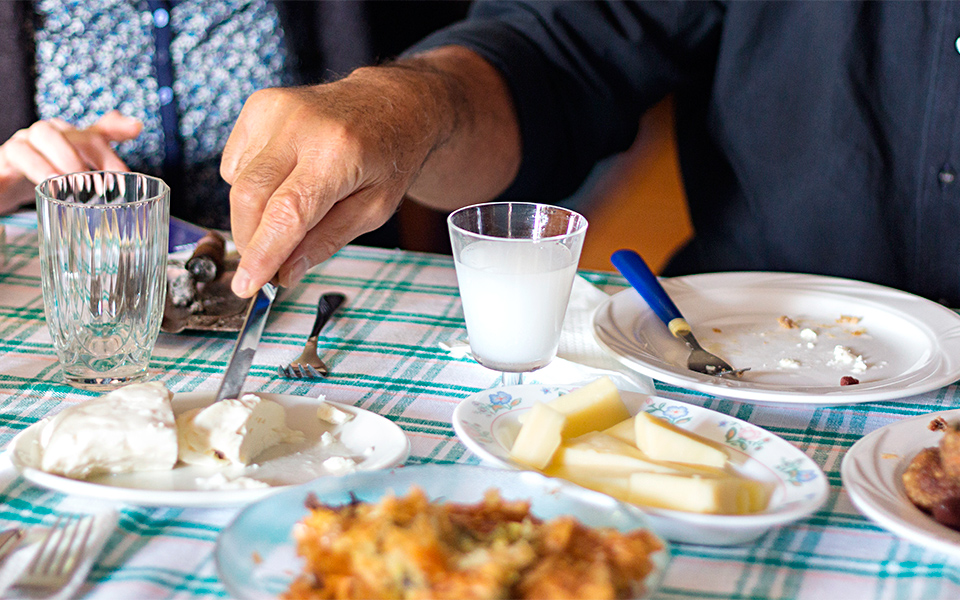
Pairings with Food
Traditional Greek drinks – raki, tsipouro, wine, retsina, ouzo – are made to be enjoyed with food. Whole genres of restaurants are built around the: rakadika, tsipouradika, and – most common of all – ouzeries. Such eateries all specialize in meze (small plates) to complement the drink.
In Greece it is generally considered unthinkable to drink without something to nibble on, which is why even in bars every drink will be served with complementary peanuts, popcorn or potato chips, at the very least. And in more rural areas (especially in regions like Crete and Epirus) often small plates of complementary cooked dishes appear unbidden (but very welcome) alongside your beer or glass of wine.
Mastering the Art of Greek Drinking
The rules of Greek drinking etiquette are a key component of the Mediterranean flair for effortlessly combining spontaneity and formality. The frequent clinking of glasses when dining out with friends is a civilized affirmation of culture, joy, life – audible exclamation points to an eternal ‘yes.’ Here’s how it’s done:
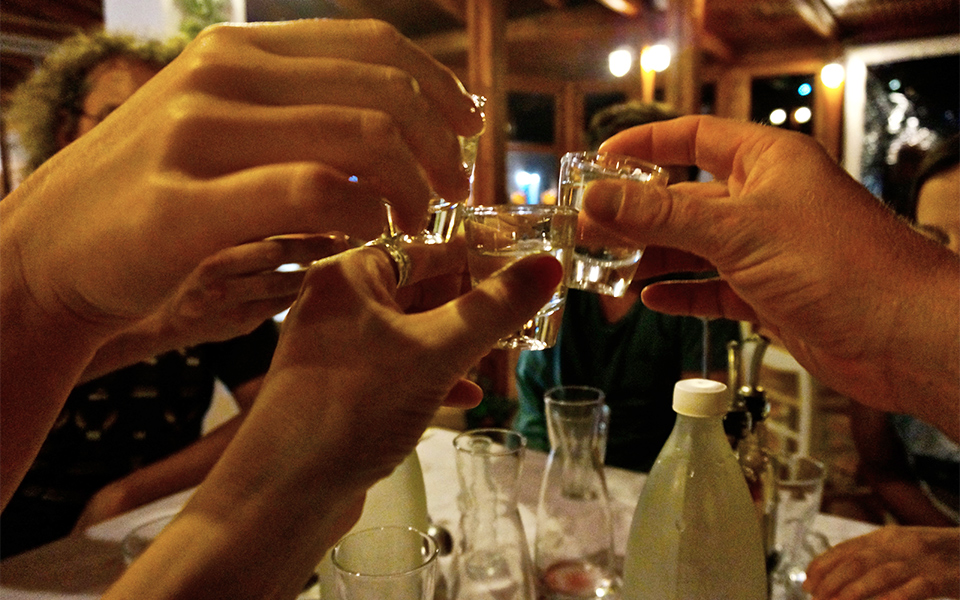
Silvia Foglia – CC BY-NC-ND 2.0
Whatever the drink, you never just start drinking. After everyone’s glass has been filled, there will be a general “ya-mas!” (“our health!”) to start things off. Thereafter, sip from your glass as you like.
Well, not exactly as you like – there will be some mandatory drinking when a new round of toasting is occasioned, such as:
- When glasses are refilled, it’s not uncommon to toast with the fresh drink. This happens a lot – glasses are generally small (perhaps this very purpose). You can fill your own glass, but fill the glasses of your neighbors first. (Who fills whose glass? Just as you wish, but it much follows the pattern of society in general – men often fill women’s glasses, and you fill the glass of your great aunt.)
- Whenever anyone new joins the party, all will toast afresh when their glass is filled for the first time.
- Nicest of all, from time to time someone will simply be seized with the impulse to toast. This is particularly the case at a large table – spontaneous toasts periodically reunite the group. People will sometimes even rise from their chairs to chime glasses with friends at a distance.
- Is there a happy event coming up? Look forward to even more toasting (“kala stefana!” = “happy wreaths!”= happy wedding).
- Do join in each toast – if all these sips are going to your head, just barely wet your lips, and drink lots of water in between.
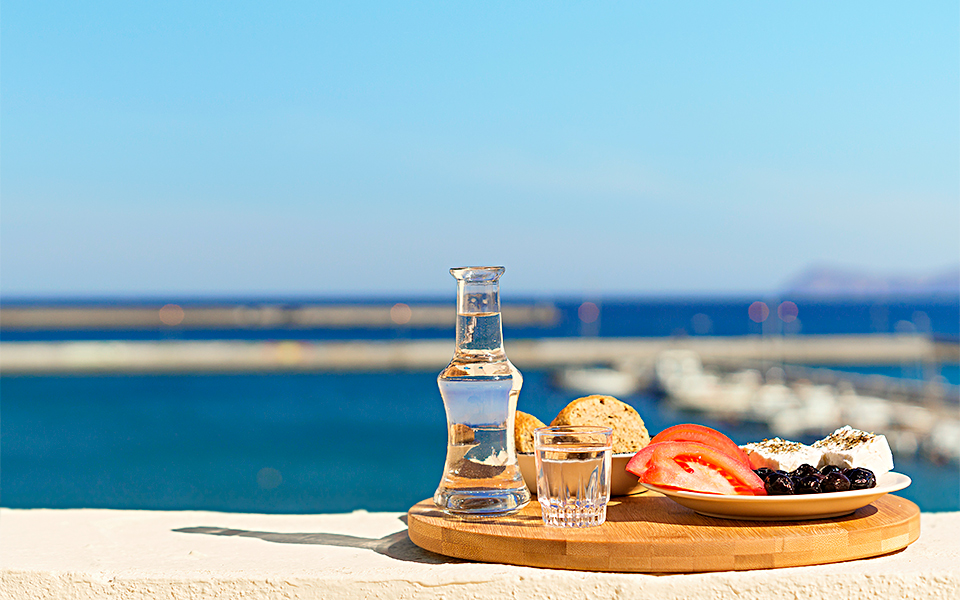
This all quickly becomes second nature – in fact, it is difficult to unlearn. Visiting San Francisco, I was well into a dinner party and waiting to have a cool sip of white wine. But what was I to do? No one had toasted yet, and I was not the host, and also the youngest by a generation. I looked around – everyone was just drinking at their own pace. So I took a sip. But without any toasting, it felt so much like drinking alone that I eventually gave up on it altogether.
You may find that Greek drinking practices, for all their complexity, are adopted with such ease that the art of drinking with style and grace is one of the best souvenirs you’ll bring home.



